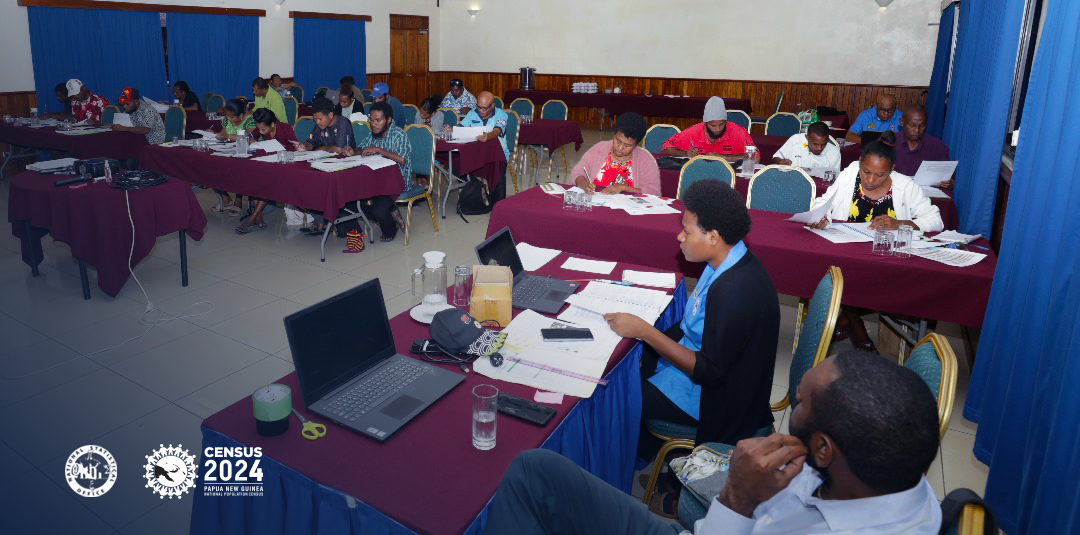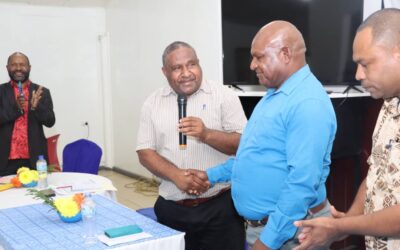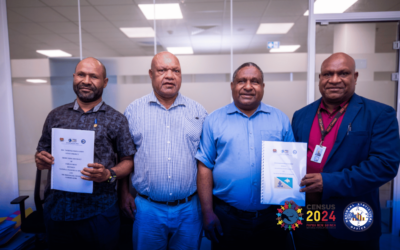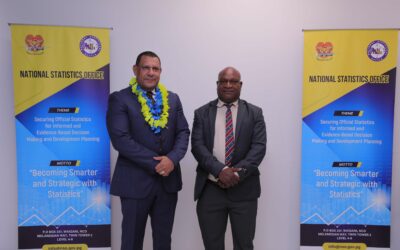Pilot Census Enumeration will be conducted in Milne Bay Province between the 16th – 25th October 2023. With the effort intended to maximize and enhance the data accuracy and data quality, National Statistical Office (NSO) has initiated a training led by a team of 8 dedicated officers from the Head Quarters (HQ) to conduct a 8-day training in the province.
This intensive 8-day training aims to equip the 20 successful participants from Milne Bay with the essential knowledge and skills required for collecting high-quality and accurate data. This data will be vital for government fund allocation, policy formulation, and regional development planning.
The success of the Pilot Census Enumeration hinges on the quality and timeliness of data collection. The interviewers and trainers play a pivotal role in this process. They must convey crucial instructions and information clearly and effectively. Mss. Sarah Simbawa and Mr. Vincent Ayok from NSO HQ are the moderators in the training along with their supervisors and monitors.
Throughout this training, the participants have covered comprehensive sessions including the; Census Interviewer’s Manual, Computer Assisted Personal Interview (CAPI) Enumeration Manual, and Supervisor’s Manual. A wide range of topics covered including data collection, data management, ethical considerations when dealing with sensitive information, and etc.
As part of the training, a practical session is scheduled to Saturday14th October. This practical is a hands-on experience designed to simulate real-life scenarios that interviewers may encounter during the enumeration phase. It allows the interviewers to apply the knowledge and skills gained during the training for preparedness in anticipation for the enumeration phase next week.
Following the practical session, the trainees will be officially deployed for enumeration. They will be allocated according to the workload distribution provided by the NSO field officers. A very critical phase where interviewers will visit specified Census Units (CUs) and enumerate the households by ensuring that all persons in their designated CUs are counted accurately. Should a household be missing from the list, enumerators will update the household listing, sketch CUs on maps, and enumerate them simultaneously. A mixture of traditional and modern methods like tablets and the CAPI application will be used for data collection.
Enumeration is a task that requires precision, empathy, and a strong commitment to confidentiality. This Pilot Census Enumeration is not just a dry run but rather, serves as a critical dress rehearsal for the actual census in July 2024. The primary objective is to thoroughly test every facet of the census procedure, from security and logistics to understanding travel timings, training durations, interview processes, financial implications, and other elements that collectively shape the quality of the data that is collected.
Accurate and reliable data are essential for the government in making informed policy decisions, allocating resources, and addressing the needs of the population. A well-conducted census is instrumental in ensuring that the government and local authorities can plan effectively for the future.
Contributed by Thoa Rapilla




